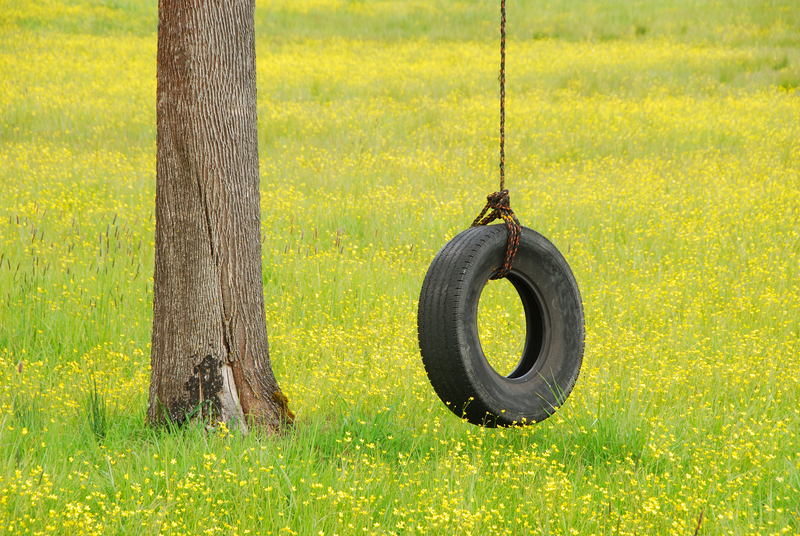Ultimate Guide to Saving Money on Bulk Waste Disposal
Bulk waste disposal can be a challenge for businesses, homeowners, and commercial property managers alike. With high costs, complex logistics, and strict regulations, it's crucial to find strategies that are efficient, eco-friendly, and gentle on your wallet. This comprehensive guide explores cost-effective bulk waste removal options, provides tips to optimize your processes, and reveals industry secrets to reduce your expenses.
Understanding Bulk Waste Disposal: What You Need to Know
Bulk waste typically includes large, cumbersome items that aren't accepted in standard trash collection-think furniture, appliances, construction debris, and oversized yard waste. Municipalities and private companies offer various pickup and drop-off solutions, but without the right strategy, costs can quickly escalate.
- Furniture: Sofas, mattresses, tables, chairs
- Appliances: Refrigerators, washers, dryers, ovens
- Renovation Debris: Drywall, wood, sinks, bathtubs
- Yard Waste: Large branches, tree trunks, bulk bags
Bulk trash disposal solutions vary based on your location, the type of waste, and the volume. Understanding these variables will help you identify the most cost-efficient bulk disposal options available.

Why Bulk Waste Removal Costs More (And How to Beat the System)
Unlike regular garbage collection, bulk waste disposal involves extra labor, special equipment, and often disposal or recycling fees. The process also typically requires advanced notice, scheduling, and sometimes permits, all of which can drive up costs.
Factors Affecting Bulk Waste Removal Pricing
- Volume and weight: Larger, heavier loads cost more to remove and dispose of.
- Type of waste: Some materials (like electronics or hazardous waste) demand special handling.
- Location: Rural areas or high-rise buildings may incur extra access fees.
- Distance to landfill or recycling center: Longer hauls increase transportation charges.
- Permits and surcharges: Municipal fees or environmental surcharges may apply.
Pro-tip: Sorting and separating items as much as possible can significantly reduce your expenses, since recyclables and donate-ables are often cheaper to process than landfill waste.
10 Proven Ways to Save Money on Bulk Waste Disposal
Ready to cut your costs? Here are the most effective, actionable strategies for affordable bulk junk removal:
1. Plan Ahead and Combine Loads
Batch your bulk waste--don't call for a pickup for every little item. Wait until you've accumulated a full load. Disposal services often charge a flat minimum fee, so consolidating your junk saves money per item.
2. Know Your Local Services and Compare Rates
Research municipal and private providers. Compare their pricing, accepted items, and scheduling. Some cities offer free or discounted seasonal bulk pickups, while others require coordination with licensed contractors.
3. Donate, Sell, or Recycle Before Disposal
- Charities often accept usable furniture, appliances, and building supplies--sometimes with free pickup.
- Online marketplaces (like Craigslist, Facebook Marketplace, or Freecycle) help you sell or give away bulk items, saving on disposal fees and helping the community.
- Specialty recyclers may take scrap metal, e-waste, or appliances for free or even pay you for valuable materials.
4. Rent the Right Size Dumpster
If you have a large project (like home renovation, construction cleanout, or estate clearance), dumpster rental can be the most economical solution. Be sure to:
- Choose an appropriate size (10-40 cubic yards)
- Compare rental durations and overage charges
- Fill efficiently, break down items to maximize space
5. DIY Drop-Off at Transfer Stations
Many waste facilities accept bulk drop-offs for a reduced (or fixed) fee compared to scheduled pickups. Borrow or rent a truck and take your load directly--you'll control the schedule and potentially save big.
6. Schedule During "Free" or Discounted Pickup Events
Some municipalities host annual bulk cleanup days or offer discounted disposal for spring cleaning events. Plan your waste removal to coincide with these promotions for maximum savings.
7. Pool Resources With Neighbors or HOA
Organize a group bulk waste collection day in your neighborhood or building. By splitting dumpster or hauling costs, everyone pays less per load.
8. Avoid Overfilling: Know the Rules
Many dumpster rentals and bulk pickups charge extra for overloaded containers, mixed waste, or prohibited items (like paint, batteries, tires). Review guidelines carefully to dodge surprise fees.
9. Get Multiple Quotes for Large Jobs
Bulk waste haulers have different pricing models. Always request at least 2-3 detailed estimates and ask about volume discounts, "load and go" specials, or contractor rates if you have an ongoing need.
10. Leverage Business, Senior, and Military Discounts
Some companies offer special pricing for businesses, seniors, veterans, or nonprofits. Don't hesitate to ask about available promotions or loyalty programs.
Choosing the Right Bulk Waste Disposal Method
There are several main approaches for bulk trash removal, and understanding the pros and cons of each will help you select the most economical solution for your needs.
Municipal Bulk Pickups
- Pros: Often included in property taxes or available for a low fee; convenient scheduled curbside service.
- Cons: Strictly limited in frequency, volume, and accepted items; may require long waiting periods.
Private Junk Removal Companies
- Pros: Fast turnaround, labor included, haul from anywhere on property, flexible scheduling.
- Cons: Higher per-load cost, possible surcharges for stairs, distance, or heavy items.
Dumpster Rental
- Pros: Cost-effective for large volumes or long projects, flat-rate pricing, self-paced loading.
- Cons: Physical labor required, rental may take street/driveway space, extra fees for overweight or prohibited materials.
Self-Haul to Waste Transfer Station or Landfill
- Pros: Cheapest per ton; perfect for one-off jobs if you have a vehicle.
- Cons: Labor/time-intensive, must sort items, landfill fees may apply.
Specialty Recycling and Buy-Back Centers
- Pros: Sometimes pay for valuable metals, appliances, or electronics; eco-friendly.
- Cons: Only accept certain items; may require multiple trips.
Tip: For huge projects or ongoing needs, investigate local commercial bulk waste brokers, who can negotiate optimal pricing or even manage multiple dumpsters and pickups for you.
Bulk Waste Disposal: Rules, Regulations, and Environmental Responsibility
Saving money shouldn't come at the expense of the environment or compliance. Many items have strict disposal requirements (think refrigerators with refrigerants, electronics, or construction waste). Failure to follow local bulk disposal rules may result in fines.
Best Practices for Legal and Green Disposal
- Check your city's website for accepted items, permit requirements, and recycling options
- Donate or recycle whenever possible, reducing landfill volume
- Avoid illegal dumping--it's expensive and harms your community
- Hire only licensed and insured junk removal companies or haulers
- Review any hazardous waste handling protocols if necessary
How to Prepare for Low-Cost Bulk Waste Pickup
Organizing your items and following a simple checklist can help you save money on every load:
- Sort waste by category: Furniture, electronics, yard waste, recyclables
- Disassemble large pieces to maximize dumpster or truck space
- Place curbside (where allowed) or in accessible areas for easy pickup
- Remove prohibited items (batteries, hazardous waste, liquids)
- Label items for donation or recycling where applicable
- Schedule pickups during non-peak times for possible discounts
Case Study: Real-Life Savings on Bulk Junk Removal
Patti, a homeowner renovating her house, faced disposal costs of $900 for individual pickups. By grouping furniture, old appliances, and renovation debris together, renting a 20-yard dumpster, and selling scrap metal, she cut her total cost to $420--a 53% savings. Her secrets: organization, recycling, and taking advantage of a local spring cleanup event.

Frequently Asked Questions About Low Cost Bulk Waste Disposal
What's the cheapest way to dispose of bulk waste?
The least expensive option is usually self-hauling to your local landfill or recycling center, especially if you can separate valuable recyclables and donate usable goods first.
How can businesses reduce commercial bulk waste removal costs?
Businesses can save money by establishing waste minimization plans, negotiating long-term contracts with bulk haulers, and separating recyclable or hazardous items to avoid surcharges.
Does insurance ever cover bulk waste disposal?
Sometimes, property insurance or disaster recovery policies may reimburse bulk removal costs following flooding, fire, or vandalism. Check your policy or ask your agent.
Are you allowed to put bulk waste in a regular dumpster?
Not always. Many standard dumpster services prohibit certain bulk items and may fine users for improper disposal. Always verify rules before loading.
Can seniors or low-income households get free bulk pickups?
Some cities and nonprofit organizations provide subsidized pickup for seniors, veterans, or those in financial need. Check with your local council or social services office.
Conclusion: Get More Value from Your Bulk Waste Disposal Budget
With a little planning, knowledge, and creative thinking, you can drastically slash your bulk waste disposal costs. Remember to always research options, compare multiple bids, recycle and donate whenever possible, and follow all local laws for proper and responsible disposal. By implementing these strategies, you'll keep both your environment and your budget in great shape!
Ready to save on your next bulk trash removal project?
Follow this ultimate guide to affordable bulk waste disposal and transform a potential headache into a smart, money-saving opportunity!
